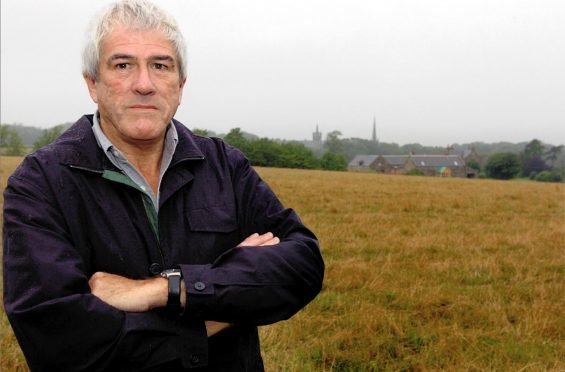An eminent biologist living on the route of the under-construction Aberdeen bypass last night said he “shudders to think” of the effect the restarted road works will have on threatened species.
Last month work was stopped on the £745million Aberdeen Western Peripheral Route (AWPR) for the Scottish Environment Protection Agency (SEPA) to investigate the alleged damage being caused to the environment.
Contractors have now returned to parts of the site in a “phased” approach as SEPA continues its enquiries.
Heavy downpours in the north-east led to silt polluting the tributaries of both the River Dee and Don with contractors stopping work while solutions were sought.
A group of five Deeside residents wrote to their MSPs raising concerns over the safety of the natural species being caught up in the works.
Professor Anthony Hawkins, former head of the Marine Laboratory in Aberdeen and one of the signatories to the letter, has raised concerns that “bad practices” may continue now the work is restarting.
He said: “There were reports of water being emptied into woods and fields filled with silt causing damage to species there.
“I shudder to think what this could be doing to the freshwater pearl mussels in the Dee.
“They have mostly died out throughout Europe over the last 50 years and the Dee is one of the few places left where they are found.
“I worry the work could be now jeopardising the survival of the mussels.”
Alexander Burnett, Aberdeenshire West MSP, said: “We must ensure that mitigation measures put in place are robust and effective.”
Calum MacDonald, executive director of SEPA said: “Our officers are continuing to monitor and evaluate the impact of the project on all aspects of the local environment and will be liaising closely with contractors going forward to ensure environmental compliance is upheld.”
A Transport Scotland spokesperson said: “The contractor has agreed a comprehensive programme of remedial works with SEPA, which will continue in the coming weeks.
“Throughout this process, the contractor remains in regular dialogue with SEPA. We take our environmental responsibilities seriously and will also continue to work with the contractor to ensure that watercourses are protected across the site.”
